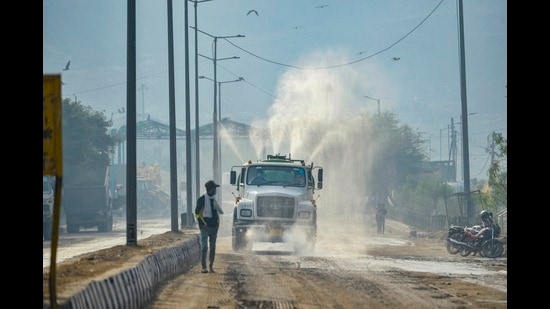MCD merger plan may face several hurdles
The legislative assembly of Delhi is the competent legislature to bring about an amendment to the Act under Part 9A of the Constitution for this purpose, whenever it feels the need to do so
The decision of the State Election Commission (SEC) of Delhi postponing the announcement of the election schedule for the municipal corporations in the Capital has caused some consternation in political and legal circles. Elections were scheduled before May 18 and reports suggest the Union government told SEC that it would be unifying the three corporations. On Tuesday, the Union Cabinet approved a proposal merging the three entities.

Article 243U of the Constitution mandates that the election to constitute a municipality shall be completed before the expiry of the duration of the existing municipality. This is a mandatory provision, which needs to be complied with by the Election Commission under all circumstances.
The Delhi Municipal Corporation (DMC) Act, 1957, was passed by Parliament. Before that, the municipal affairs of Delhi were run by a multiplicity of agencies, leading to problems. This Act created a unified body called DMC. In 2011, the corporation was trifurcated. This was done by amending the Act in the legislative assembly of Delhi and not Parliament, though the trifurcation was preceded by public debate and citizen demands.
There are certain constitutional issues involved in the legislative and administrative control of DMC.
First, under item 5 of the State List in the 7th Schedule of the Constitution, the constitution and powers of municipal corporations come within the exclusive jurisdiction of state governments. Thus, under this provision, the entire local government such as panchayats and municipalities are established and functionalised under laws made by state legislatures. Second, Article 246(4) of the Constitution empowers Parliament to legislate for a Union Territory (UT) on a matter which is in the State List. Delhi, as a part C state, had an assembly and a CM (Chaudhary Brahm Prakash) from 1951 to 1956. Thereafter, Delhi became a UT and the assembly was abolished. It was brought back only in 1992. So, Parliament was the sole legislative body for Delhi in 1957, when the DMC Act was enacted.
But a third factor is also important. The incorporation of Part 9 and Part 9A in the Constitution through the 73rd and 74th amendments, relating to panchayats and municipalities respectively in 1993, was a landmark event in the history of local self-government. For the first time, panchayats and municipalities were established by the Constitution. State legislatures were empowered to structure these bodies in terms of election, finance and taxation. As a result, the responsibility for legislating on all aspects of the functioning of local governments, starting from elections, is solely with state legislatures.
Therefore, the question is whether Parliament has the power to legislate in respect of local governments in Delhi. As mentioned earlier, Parliament has the general power to legislate on a matter in the State List for a UT under Article 246(4). But this is a general provision. After the enactment of Part 9 and 9A in the Constitution, this position has changed.
This is made clear by Article 243ZB, which says, “The provisions of this part shall apply to the Union Territories……”. The only caveat is that the President can, through a public notification issued under this Article, make modifications or exceptions in the provisions contained in Part 9A.
As far as is known, the President has not made any such modifications or exceptions in those provisions with respect to their application to the municipal corporations of Delhi. Thus, Part 9A is, in its entirety, applicable to these corporations and only the Delhi assembly has the power to legislate on all matters, including the reconstitution or reunification of the municipal corporations of Delhi.
An important point to note here is that the provisions contained in Part 9A are special in nature whereas Article 246, which empowers Parliament to legislate for a UT, is a general provision. One of the rules of interpretation of statutes is that special provisions prevail over general provisions. Therefore, it is a state legislature, which is constitutionally mandated to legislate on the reorganisation of municipal corporations.
In that view of the matter, the Union government’s attempt to unify the three corporations of Delhi is not free from legal and constitutional problems. The legislative assembly of Delhi is the competent legislature to bring about an amendment to the Act under Part 9A of the Constitution for this purpose, whenever it feels the need to do so.
PDT Achary is former secretary-general, Lok Sabha
The views expressed are personal
All Access.
One Subscription.
Get 360° coverage—from daily headlines
to 100 year archives.



HT App & Website






